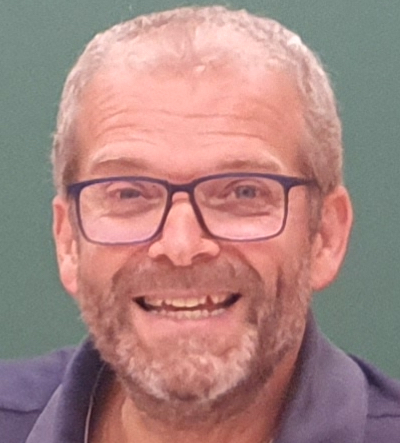Degree: Doctor
Affiliation(s):
FCUP
Bio
João Carlos de Matos Paiva is Associate Professor in the Chemistry Department (Education), of the Faculty of Sciences of the University of Porto - PORTUGAL. He is member of the Education, Science Communication and Society area in the Centre for Research in Chemistry of the University of Porto (CIQUP). He has a particular interest in research on the subject science-education-religion.
Publications
Showing 5 latest publications. Total publications: 61
Show all publications
1.
Citizen Science in Promoting Chemical-Environmental Awareness of Students in the Context of Marine Pollution by (Micro)Plastics,
in REVISTA ELECTRONICA EDUCARE, 2023, ISSN: 1409-4258, Volume: 27,
Article, Indexed in: authenticus, crossref, scopus, unpaywall, wos DOI: 10.15359/ree.27-1.15845 P-00X-KMS
P-00X-KMS
Article, Indexed in: authenticus, crossref, scopus, unpaywall, wos DOI: 10.15359/ree.27-1.15845
 P-00X-KMS
P-00X-KMS
Abstract
Objective. To evaluate how the tasks carried out by the students in the scope of the PVC educational citizen science project for monitoring the quality of coastal waters contributed to raising their awareness of the problems of marine litter, in particular, the pollution of the ocean by plastics and microplastics, and the importance of chemistry in society. Methods. The project stage here presented consisted of six asynchronous tasks, conducted with digital mediation through the Moodle platform. The project took place in the 2018/2019 school year and involved 442 students and nine chemistry teachers from a middle school in the northern coastal region of Portugal. Data on the impact on students' awareness of the contexts considered were collected from the outputs the students produced in each task. The data were analyzed using the content analysis technique. Discussion. From this analysis emerged indicators of the PVC project's positive contribution to raising students' awareness of the pollution of marine environments by (micro)plastics, as well as raising awareness of the role of chemistry in society. The students expressed positive opinions toward this science and recognized its links with other areas of science and technology. Conclusion. Thus, it was found that citizen science projects significantly promote students' awareness of chemical-environmental subjects by exploring current and relevant contexts.
2.
Students' attitudes towards the environment and marine litter in the context of a coastal water quality educational citizen science project,
in AUSTRALIAN JOURNAL OF ENVIRONMENTAL EDUCATION, 2023, ISSN: 0814-0626, Volume: 39,
Article in Press, Indexed in: crossref, scopus, unpaywall, wos DOI: 10.1017/aee.2023.14 P-00Y-KB7
P-00Y-KB7
Article in Press, Indexed in: crossref, scopus, unpaywall, wos DOI: 10.1017/aee.2023.14
 P-00Y-KB7
P-00Y-KB7
Abstract
This research focus on the evaluation of the impact on students' attitudes towards the environment, fostered by their involvement in an educational citizen science project related to the monitoring of physicochemical properties and the detection of (micro)plastics in Portuguese coastal waters. We developed an attitude scale, comprising four dimensions (Collective, Personal, Recycling and Reuse and Microplastics), which was applied, as a pre-test and post-test, to 574 middle school students (aged 12-14): 442 in the experimental group and 132 in the control group. Initially, based on pre-test results, both groups revealed positive attitudes. In the experimental group, the post-test results revealed that significantly positive attitude changes were promoted in all dimensions, whereas, in the control group, this occurred only in the Personal dimension. The control group also exhibited significantly negative attitude changes in the collective dimension. Students' engagement in sustainability-related citizen science projects can enhance environmentally literate society.
3.
More than a Common Place: A Social Representations Approach to the Internet,
in PAPERS ON SOCIAL REPRESENTATIONS, 2023, ISSN: 1021-5573, Volume: 32,
Article, Indexed in: scopus, wos P-00Y-WS1
P-00Y-WS1
Article, Indexed in: scopus, wos
 P-00Y-WS1
P-00Y-WS1
Abstract
This study aimed to investigate the commonsense knowledge about the Internet and its relationship with social groupings from the perspective of social representations theory. We surveyed 1013 participants (students, teachers, and guardians) from three schools, using the ranked association technique, the General Internet Attitudes Scale, and the Web-Use Skill Measure Index. We conducted a correspondence analysis on the data. Results showed that the representation of the Internet is associated with different social groupings, being organized along a media-message axis and a personal-social axis. While students, participants with lower education levels and participants with positive attitudes toward the Internet have a personal media usage representation, teachers and participants with higher education levels showed a greater focus on the social message. This study is significant because it shows that the Internet - as a social object - is not consensual. This suggests a connection between the social representations of the Internet and social identity that future research should explore to better understand and bridge the digital divide.
4.
Citizen Science as a Pedagogical Tool in Chemistry Education: Students’ Attitudes and Teachers’ Perceptions,
in Interdisciplinary Journal of Environmental and Science Education, 2022, Volume: 18,
Article, Indexed in: crossref DOI: 10.21601/ijese/11841 P-00W-6G9
P-00W-6G9
Article, Indexed in: crossref DOI: 10.21601/ijese/11841
 P-00W-6G9
P-00W-6G9
5.
Science-Religion Dialogue in Education: Religion Teachers' Perceptions in a Roman-Catholic Context,
in RESEARCH IN SCIENCE EDUCATION, 2022, ISSN: 0157-244X, Volume: 52,
Article, Indexed in: authenticus, crossref, handle, scopus, wos DOI: 10.1007/s11165-020-09941-x P-00S-B21
P-00S-B21
Article, Indexed in: authenticus, crossref, handle, scopus, wos DOI: 10.1007/s11165-020-09941-x
 P-00S-B21
P-00S-B21
Abstract
This paper examines the relationship between science and religion in the education system of Roman-Catholic Portuguese society. In particular, we explored perceptions of the relationship between science and religion for religious education teachers. We surveyed 198 Portuguese religious education teachers about how they view science and religion. The questionnaires' results revealed a number of similarities: religious education teachers are highly involved in religious practices and exposed to science; they perceived a compatibility between science and religion; and they have an openness to dialogue between both. They do not adhere to anti-scientific perspectives, but they simultaneously try to limit what can be explained by science. Thus, an interpretative view of dialogue and/or integration seems to best explain the perceptions of religious education teachers of the relationship between science and religion. These findings allow a space of discussion, enabling teachers to possibly foster the science-religion dialogue in their contexts of pedagogical activity.

